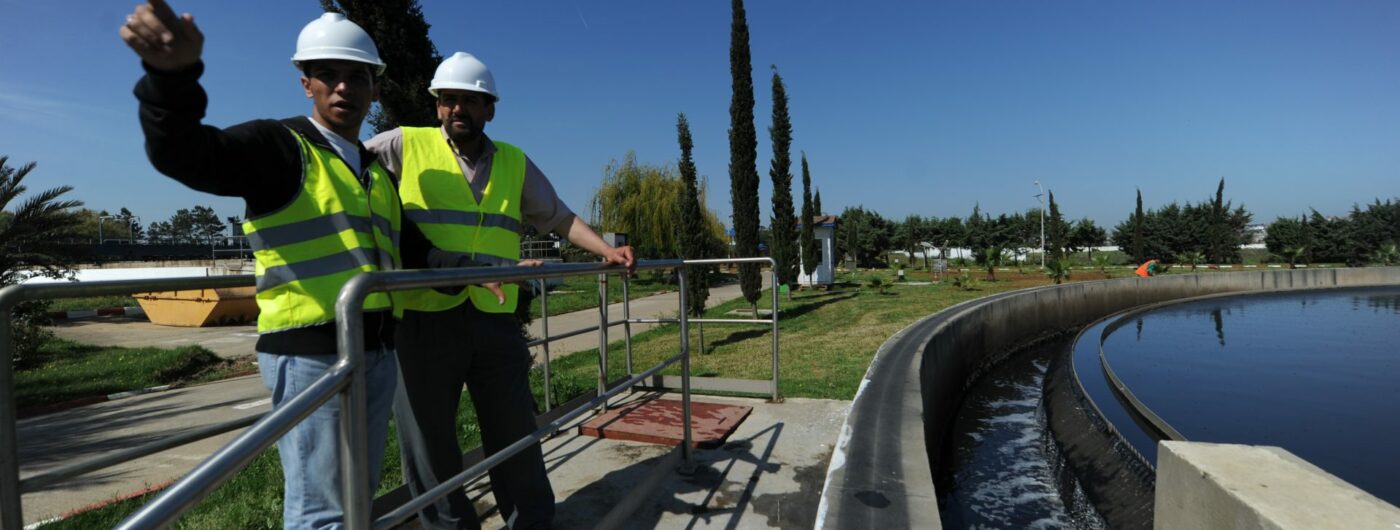
Analysing the impacts of COVID-19 on the provision of drinking water and sanitation
The Union for the Mediterranean (UfM) and the Mediterranean Water Institute (IME) met with experts at the 3rd Brainstorming Meeting to further discuss the impact of the COVID-19 pandemic on drinking water and sanitation.
19 May 2020. The provision of safe water, sanitation and hygienic conditions is essential for protecting human health during all infectious disease outbreaks, including of coronavirus disease (COVID-19), especially in some areas of the Euro-Mediterranean region, already under stress due to the water scarcity caused by the climate crisis. Together with the Mediterranean Water Institute (IME), the UfM held the 3rd virtual working session on the effects of COVID-19 on water and sanitation.
UfM Deputy Secretary General, Isidro González, stressed that: “water and wastewater workers, as well as manufacturers and suppliers need to be considered as essential workers and infrastructures and operators should be protected.” He invited the participants to exchange their expertise and draw an emergency action plan to fight against the virus without forgetting the nexus between water and public health. He also called upon participants to contribute to the Consultation Meeting on the UfM Water Agenda and Financial Strategy and Ways Forward in the post-COVID 19 context, to be held online on 9-10 June, and focused on the implementation of the UfM Water Policy Framework for Actions 2030.
Alain Meyssonnier, President of IME, reminded that “the budget allocated to the water sector has decreased” and that this crisis is an “economic and health crisis which also engages a political and social crisis”.
Participants from France, Morocco, Spain, Tunisia and Turkey agreed that it is essential to invest not only in infrastructures but also in the well-being of citizens, as well as improving the resources, with guaranteed water supply, quality and sanitation. Expert Enrique Cifres, emphasized the need to take into account the environmental point of view as we are also facing the impacts of climate change, especially in the less developed countries. In the Euro-Mediterranean region, over 250 million people are expected to be “water poor” within the next 20 years, with numbers potentially exacerbated by the COVID-19 pandemic.
On another note, experts Latifa Dhaouadi and Raoudha Gafrej, from Tunisia, highlighted that “water consumption has increased 15% in Tunisia during pandemic”. The second roundtable invited the participants to exchange in the steps IME needs to follow, especially working with local authorities, coordinating the crisis management and offering a support service to decision-makers with a multi-disciplinary and sustainable approach.
UfM Managing Director for Water, Almotaz Abadi, outlined that “there is no health without water” and therefore investments in the WASH (Water, Sanitation and Hygiene) Sector are essential. He also recalled that the UfM’s objective of implementing the Sustainable Development Goal 6 (“Ensure availability and sustainable management of water and sanitation for all”) in the Mediterranean region remains the same, with a need to align the UfM Water Agenda with the EU Green Deal making sure that the region’s response to COVID-19 is innovative, creative, blue and green. In all, the UfM seeks to provide the EU and the region with thoughts to feed the discussion on the green recovery in water in the Mediterranean region after the pandemic.
More information
Mediterranean countries share water emergency and recovery plans to tackle the aftermath of COVID-19
UfM response on COVID-19
The UfM Ministerial Declaration on Water (2017)

